We know both consumers and agents want and expect a different buying experience today. The industry has made significant strides in the last few years. However, the journey isn’t over yet. Josh Elohim and Reid Tattersall from Back Nine Insurance Services give their recommendations for innovation that carriers should support.
Links mentioned in the show:
Listen
Watch
Receive Updates
Show Sponsors
Episode Transcript
The discussion is not meant to provide any legal, tax, or investment advice with respect to the purchase of an insurance product. A comprehensive evaluation of a consumer’s needs and financial situation should always occur in order to help determine if an insurance product may be appropriate for each unique situation.
paul_tyler:
Hi, this is Paul Tyler and welcome to another episode of that annuity show. Today we are going to talk about advice and technology, how it’s changing, where it is today and what it may look like the next four or five years. Tisa, good morning. How are you?
tisa_rabun_marshall:
Good morning, doing good.
paul_tyler:
good. Well, this is a topic that’s going to be near and dear to your heart. So looking
tisa_rabun_marshall:
Definitely.
paul_tyler:
forward to questions you’re going to pose to the group. Bruno, good morning.
bruno_caron:
Good morning to you.
paul_tyler:
Yeah, and great to have you on the show again. Ramsey, do you want to do the intros?
ramsey_d_smith:
Be happy to. So as always, very happy to be here live from Atlanta. We’re joined today by two folks from Back9 Insurance out of Southern California. We’ve got Reed Tattersall, who is the founder and VP of Back9. And we’ve got Josh Elohim, who is the is the head of sales. And I had the opportunity to meet both of them through various venues over the course of the last you know, interact with their software. And as somebody who thinks quite strongly that software is gonna be an important part of the future, or should be an important part of the future of insurance, I thought it was a great opportunity to bring them on the show, to chat about their approach. Because it, I think there’s a lot of things about it that I think, you know, will be relevant for our industry going forward. So with that, I’m gonna pass it on to the two of you. Reid, why don’t we start with you? Tell us a little bit about yourself. And what made you decide to take this approach as somebody that came from a traditional background in this space?
reid_tattersall:
Thanks for having me. Yeah, so, Scott Mystart, like most agents with the captive company started with Mass Mutual. I think I was in college at the time. Don’t know what I was thinking, just wanted to work or do something productive. And then, I worked for another wholesaler when I was in college as well. And I was all about that education early on, before kids had a lot of time on my hands. CHFC
josh_elohim:
Thank you.
reid_tattersall:
kind of went on and started to grow back nine and kind of started at the bottom in terms of the case management, the marketing, the sales went on and on and Took a while to realize that to have a larger business, to scale it, it’s difficult if you do that just based off of relationships. You know, if your competitive advantage is my relationship with you, you can have a great career, great business, but to grow your team is difficult because the power in that relationship is between that salesperson and that agent. the switch to the technology. Hey, how do you create something that’s a bit more lasting, a bit more sticky, and kind of just dove into that and found a passion for it, and haven’t quite picked our heads up since. So it’s been, I say we’re a very, I still feel like a startup, but it’s been a long time in startup world. I mean, it’s been maybe nine years of building software of iterating to get here.
ramsey_d_smith:
Josh, tell us about yourself. So I’ll just say that Josh is somebody you’ll see spreading this gospel through webinars at conferences.
josh_elohim:
Ha
ramsey_d_smith:
You know, it’s you are, you are out and about and I’ll say you do it very well. Tell us about, tell us about your story.
josh_elohim:
I really appreciate it. I won’t go too far back, but opposite of Reed, I’ve kind of had kids first, and then started working second, if that makes sense. But, so yeah, I’ve been doing sales since I was born. I joke around and say that, but sales is just kind of in my blood, and I just love talking to people and communicating. But I’ve been with Back9 now for, it’s been almost 13 years. Now, I came in with no experience, so it’s a little bit different. whole sales side. It’s always nice talking to someone when they have 30 years of experience and you’re explaining to them why they should work with you, right? So ideally, I’ve learned so much in this business. It’s an absolutely phenomenal business. We always say it’s kind of like this, just very, very, very, very, very slow. It’s not like this, but just very slow and steady. So life insurance, you change people’s lives and it’s truly been a great amazing people and really help to change people’s lives. So I’m really excited for the opportunity here.
paul_tyler:
Yeah, maybe talk to us about a little bit about the problem you’re attacking. Reed, you kind of mentioned that you said it’s hard to grow a business just on personal relationships. You know, what’s the problem you’re solving for agents at your firm?
reid_tattersall:
It’s a big industry, as you know, and so many different ways to sell. So we’re trying to solve a, it’s like the Steve Jobs thing, where how did he compete with free, right? In the era of free music, free movies, just download it for free. What did he do? He made it easy, so easy that you decided to actually pay. So that’s kind of been high level of, How do we create a marketplace so I can go to Expedia.com as opposed to, you know, one airline. I can see all the options, my contractings all handled, I can view the case from start to finish and I can service it as well.
ramsey_d_smith:
Well, what are some of the things that, as you talk to agents, what are the things that, one, come up as the biggest friction points that you’re resolving, and then two, that agents are most surprised that you fixed.
reid_tattersall:
I think agents are most surprised that it’s all just there and they don’t know how easy it is. Right, Ramsey, we were talking, and hey, if you have a WordPress website, you can grab your snippet of code, put it online, and you’re in business. So, agents are constantly emailing, hey, I wanna get set up, cause it’s gonna take time, or am I all set up, what are the next steps? And usually the next step is go sell a policy. You’re already set up. From there though, it’s not easy to be an agent, right? It takes a lot to be successful in that business. So that’s when I say, the hard part is on them to build relationships, to go make it happen. We can make it easy in terms of put everything there for you. Carriers obviously do their part of the whole operations from putting products out and paying commissions. making it happen with customers.
josh_elohim:
To add onto that too, if you don’t mind, I think to figure out a solution, like you said Paul, what’s the problem? And the problem that I’ve seen in this industry is that I joke around, but agents used to do life insurance illustrations with a rock and a chisel, right? So people are used to 40, 50, 60 page paper applications. And so Reed’s vision, he’ll be bashful here, but his vision was he’s a surfer. while collecting applications at the same time. How is that physically possible? So that’s kind of part of the reason that QuotinApply came to fruition. So the goal is when you show people who appreciate our software the most are the agents who’ve been doing this for 20, 30, 40 years. They’re the ones that are like, this is the best thing since sliced bread. Millennials will say, isn’t this the way it’s always been? And then we have to bring them back to reality that, oh, you have no idea this process used to be. So really identifying the problem allows us to get to the solution and that’s what we’ve kind of done here is really just identify the challenges and the second part to that is keeping a lot of agents that have been in the dark. They don’t know what’s going on with their business once they do submit an application. That’s the whole second part of the equation and that’s where we created a whole software to track everything to help agents out, bring them to the 21st century.
tisa_rabun_marshall:
I have a question. Sounds like you’ve been on this technology journey well ahead of the pandemic, but I’m just curious during the time of the pandemic, when we hit that timeframe and we went to quarantine and we really had to change how we worked right overnight. Do you feel like your platform was like well positioned and poised for that change? Were there any surprises where you had to quickly pivot, do something different with your technology to meet agents change in how they were doing business?
reid_tattersall:
Yeah, that year, I think our application count went up at least 60%. So from a business standpoint, we were, um, you know, somewhat prepared, right? It fell into our business model, but there were some bumps along the way, right? You know, carriers change a lot of rules in terms of e-delivery and new forms and such. Um, you know, it’s, it’s awkward to say that, you know, COVID was good for your business platform where insurance agents now have an easier way to sell insurance online or over the phone when in time when you can’t see people I’m happy that you know we were able to do that.
tisa_rabun_marshall:
Did you have any new kind of new offerings come out like post on the other side or?
josh_elohim:
I can speak on this if you don’t mind, Rita. We, for us, it was, I think it was absolutely amazing. Well, first of all, we went to Zoom, we went to technology, software, so being able to communicate where before, I would go, you know, I’ve been in this business for a while, I would throw the suit on, and I would go drive to agent’s office. Did any of you remember that when that used to happen? So that was a very interesting time. Now I can talk to 20 people in a day, and I can see them and I can hear them. integrations that we were trying to get access to. So the front door has been closed for a long time, but the back door with integrations and I had integration come through that was one of my biggest ever. So for me it was absolutely a game changer for us to have the pandemic helped us out tremendously in my opinion.
ramsey_d_smith:
So what has the state of readiness been with sort of the suite of characters, carriers, with whom you’re contracted? Because sometimes the front end, right, the front end is ready, but then at a certain point it hits a back end, set of back end processes. And sort of across all the carriers you deal with, I mean how many of them are sort of product and business.
reid_tattersall:
That’s one of the hardest things of having kind of a marketplace is how do you standardize You know the user experience when each carrier you know has a different interpretation of the same law of You know how products can be sold so there’s a lot of Unique logic that goes on per carrier unfortunately, and these carriers they’re the mountains and Signing up for the fight of gonna try to move a carrier, you know We’ll give a little prod a suggestion here and there, but it’s really up to them That being said, we’ll kind of wait for the carrier to say that they’re ready on certain initiatives, like direct integrations to get applications done instantly. A lot of carriers are excited, but I think their sales teams are well ahead of where the departments are. And then a lot of these insurance companies are dealing with software that was built a long, long time ago. that and it’s not that they’re not working, it’s just, you know, they’re working with some more difficult tools. So we kind of, you know, on a, maybe even a daily basis are looking up and saying, Hey, what’s going to make the best impact? You know, how do I improve our business 10% this week? And those decisions constantly change. It’s hard to know that six months a year in advance. I mean, we have general visions on, on where to go. moving fast and I think if you have a team you just start you know you start building you start you know adding value you start making your users happy and you iterate it’s that lean startup mentality for insurance so you have so many companies out there each one has a different writer or feature or underwriting thing that and it’s insurance right there’s so many niches insurance to life to all these different lines to my guess Paul we were talking about. So our thing is kind of just shots and goal and continuing to try to improve the product, make users happy, that’s the North Star.
paul_tyler:
you could talk just a minute about the other end, the agent operating system. You know, I would say, you know, our Tison and I, Tison and, uh, and I spent a lot of time with some of our agents, you know, talking through their digital marketing needs. Um, they’ll have a website. May not be very good. Sometimes it does look good, but they just don’t have a lot of traffic here for somebody to really take advantage of this technology. What type of journey do you have to take them on? as long as it takes to go, Josh, from I’m used to driving out with a suit and tie, to I actually can comfortably build up my email network and traffic onto the website where I’m actually getting business.
josh_elohim:
No, absolutely. Well, I think failing is what helps us to win, right? And sometimes the only way to really appreciate something is to not have it or to fail at it. And that’s where we’ve seen, you know, our job, like I always said, we have the most fun job on the planet because when you’ve already gone through the failure and you see all the challenges, like I’ve seen everything that can go wrong, right? Everything. And then you have an 85-year-old who gets on a call with you and he says, I can’t believe how easy this is. job is it’s actually working right and so ideally you’re just showing them a process that’s normally done very painfully in the past and then you show them how easy it is now and they’re like wow this is where have you been my whole life? You know how many people have called me and said I’m gonna come out of retirement here because I used to do this all the time and now you’re here now so my favorite quote that I heard was this brings the life Right.
ramsey_d_smith:
So what kinds of things, what kind of agent profiles do you see that are, for whom this works? I mean, so you have, I don’t know, you have however many folks in your pool, like what kind of habits, personality traits, et cetera, like what do you think, how is the agent in this paradigm different than the one that was successful in the old sort of smile and dial paradigm? person.
josh_elohim:
You’ve definitely seen a change in our business. The agent that we know from when I first started was the traditional life insurance agent. That’s all they sold was life insurance. Now we call them dinosaurs now, but that was their bread and butter. They used to carry a book around, right, a thick book, and no one had access to that book, so that was their go-to. And that life insurance agent, what we’ve seen is that now life insurance is not just change now is we’re seeing P&C agents come in and sell life insurance. We’re seeing employee benefit agents come and sell life insurance. We’re seeing financial planners starting to cross sell life insurance. So I think sometimes it’s out of fear, sometimes it’s out of greed, sometimes it’s out of, you know, there’s several different reasons why, but if anyone has a book of business, that’s the best opportunity for them to start cross selling life insurance because what It’s a very sticky client and what it does is it helps because people don’t get rid of their life insurance. They might change it, but they don’t normally get rid of it. So it really makes a very sticky client and it helps to secure that book of business.
reid_tattersall:
Ramsey,
bruno_caron:
And you mentioned
reid_tattersall:
I, I,
bruno_caron:
the, oh sorry, go ahead. No,
reid_tattersall:
no,
bruno_caron:
no,
reid_tattersall:
go ahead, Bruno.
bruno_caron:
no, but you mentioned the 15, the 50 pages that are already, oh, always there that everyone struggled with. How do you see and how can you use technology to make it more efficient? And most importantly, shape the right message. Because I think we all know that sometimes puts us all on different tangents that are not necessarily relevant for the core and the real focus of any insurance product that you’re selling. So how can you use technology to bring the conversation at the right place and focus accordingly?
josh_elohim:
I think that, it’s a great question Bruno, and I think that freedom is what people really want these days, right? They wanna be free and they wanna do, they wanna be able to have what they wanna have. I always joke around, I say, you wanna be free, like Braveheart. But, does everyone see this thing right here? I know the viewers can’t see this, but I have my cell phone up here right now. We’re all hunters, not like we used to hunt, but hunting now is done through the cell phone. So, people hunt through their cell phone every single day, So ideally, we need to build it to have the new features of hunting. This is building this for the millennials, building this for people who are so used to having what they want, when they want, without having to, I’m sure you’ve all seen things where you go to get life insurance, and then they say, give me your email and your phone number. Most people just leave that site. So it’s about giving people information and giving it to them quickly. And when you give people what they want, happens, they take it and they run with it.
reid_tattersall:
I think people think of life insurance online, and a lot of times they just associate with like direct marketing or spin a website up, and all of a sudden people are gonna purchase life insurance or products from them. And that’s been especially difficult the last couple of years. You’ve talked earlier about money going into a bunch of companies that are no longer in business or are not doing so well. It was a red ocean to buy leads. If you were doing SEO or buying leads 10 years ago, very different than the last five years. As some of these people stop spending so much, that wave may come back where it’s a bit more affordable. Companies, it’s not okay to lose a ton of money. The type of agent using this is technology can be used by the traditional agent. process to quote, I want to have my fingertips, I want to take applications whether it’s on my phone or the customer does it or you know we have this other sort of embedded insurance type of marketing and we’ve sped that process up dramatically right it’s you know if you have if you have trust with your users the initial thought with this was hey we’re gonna go to think of America and for products but aren’t doing them. What do they have? They have the trust with the customer. So those sorts of organizations, if you have trust with your audience, you can probably do embedded insurance because your brand customers know you. If you don’t and you’re for the first time buying Facebook ads, you know, you’re going to have a much, much harder time. You’re probably going to fail. agent thinking that I can just stick this on the website, there’s probably a bit of a reality check for nine out of ten of us.
paul_tyler:
Interesting. So we have an event actually in New York on the 27th. Ramsey’s leading one panel. Topic is Future of Innovation and Retirement. We actually have a VC panel. And one of the questions is, you know, where is the money going? Where should the money be going? If you kind of look to take your experience, you know, look, a lot of people have done some great work, some as found and solved a problem. I think others juries out. You know, if you were advising somebody on a hundred million dollar VC portfolio in this space, where would you put the money?
reid_tattersall:
Yeah.
ramsey_d_smith:
Pick your bank carefully first.
paul_tyler:
Pick your bank.
josh_elohim:
Ha ha ha ha!
reid_tattersall:
Crypto life insurance. No, just kidding.
paul_tyler:
Yeah.
reid_tattersall:
What’s so we’re talking? Hey, do you become a carrier? Do you become a distributor? Do you become a fee based service?
paul_tyler:
Yeah, if you kind of looked across the services you’re building, the services you’re using, you said, you know what, if we had a better XYZ, this industry would be a lot better. It would be easier for us to go to business, it would be easier for agents to sort of plug into this marketplace. Would it be, you know, on the lead gen side, would it be, you know, the technology that maybe may have a broader, you know, impact on our business? Zoom, I’m going to tell you, is probably one of the best insure tech disruptors of our time.
josh_elohim:
Thank you.
paul_tyler:
probably don’t see it that way, we do.
ramsey_d_smith:
Well, maybe another way to think about it is, so you’ve solved, we’ve got a business process here, right? There’s a value chain and you’ve solved a clear portion of it, right? And then there are other parts of the value chain that probably introduce some constraints in your business. As successful as your business has been, there’s probably other things you wish other people would fix. So maybe what are the things that you would wanna see fixed outside of your direct purview, be helpful to to growing your business further.
reid_tattersall:
It’s great to see carriers hiring their own talent for engineering and building their own tools. In that situation, they control their destiny. If they use a third party, what usually happens is, well, let’s get a bid from that third party. Let’s get approval for these hours and things just don’t happen. So, you know, I can’t say you could just jump in insurance company, but if you could allocate that money towards, you know, hey, you spend a couple million, five million per carrier and you divvied out to 20 carriers, and their job is to build APIs for distribution for anyone that needs it. And now we have this ecosystem, almost like this open source community where we can see everything that’s available. story to carriers of creating an API sales strategy. One of the most important things from a company is being able to provide your quote. What is your price? You can’t provide, are you serious? You can’t provide your price? And a lot of companies are still there today where we don’t want our price to get out because we don’t want to be spread-sheeted. So yeah, I’d say companies build internal tools, put them out there with public documentation, show the world what you have. And I think it might take some time, but people are gonna adopt that.
paul_tyler:
I love that answer. I do think like open banking should come to insurance open insurance Now it’s interesting. I’ve talked to people who are involved in the NAAC and they say what could we do? I’ll tell them, you know, you got a lot of power there. You dictate that carers must file a PDF application for you to prove Why don’t you require an API at the same time now I get just blank stares What are your thoughts here? Should we, you know, when we go to mark with products, should we, every carer be required to also file the API with the regulator state by state?
ramsey_d_smith:
Well, I think sort of philosophically, I think as an industry, and even coming from being an investment banker, we were wired the same way. We tend to focus a lot on the technology of like the project itself, the widget. But the real sort of opportunity is to focus on the experience. And so the question is, you know, all right, well, what form of product lends itself to being delivered through electronic media, for the whole, again, from point to point. So yes, whether it’s submitting an API or whatever it happens to be, but literally in the process of developing a product, also being very clear on the electronic journey it’s going to take along the way, I think is important.
reid_tattersall:
When you compare that to a company that has to deal with hardware or inventory, I keep on thinking it should be so much easier, right? We’re selling intangible products. You know, these things are unlimited.
tisa_rabun_marshall:
Yeah, it’s an interesting question, Paul. I mean, I think about the power of enforcing or standardizing something through the submission and approval process. And I think technology or the API sort of unlocks and gets everyone’s mind shifted to, we’re going to enable this every time and all carriers will offer it. But I almost take it back a level to the very, very basics of a common form or a standardized, like, everyone needs name, everyone needs SSN. then enabling technology on top of it would be much easier. You’re not necessarily having to retool and rebuild for each carrier. Each agent, you know, agents across several carriers would have a common experience. Clients across several purchases could have a common experience. And I know it’s a kind of huge thing to tackle. I’ve heard it talked about a little bit, but standardizing or creating sort of that common form. And they’ve done it for scholarships. You know, why can’t we do it for insurance?
paul_tyler:
Yeah, Bruno, I actually think Canada’s farther along this curve than the US. I mean, I’ve seen, now there are fewer carriers in Canada who have much more market cloud. But I know that there were some sort of standardized efforts to do things as, yeah, Ramsey’s boring as checking licensing centrally. Bruno, have you spent much time looking at the Canadian solution to this?
bruno_caron:
Well, it’s like everything else. The big institutions, government, tackle problems one way or the other. So I wouldn’t say one way is better or the other way is better. But I think there’s a common denominator where everything takes so much time. Simple things, just like Tisa, just like you mentioned, those very simple things take a long, long time. For better or for worse, but I wouldn’t say, you know, when one country is significantly ahead of the game or the other, I mean, those issues, I think, are recurring everywhere.
paul_tyler:
Josh, yeah, go ahead.
josh_elohim:
I was going to say, I get the challenge. See, the challenge for carriers is they have to protect themselves. So life insurance has always been sold through an agent. That’s kind of like been their security of protection. Well, nowadays, now we have, I can’t speak for anyone else, but our software is individually. It can be done by the client. So now, all of a sudden, you have a new level of security that scares the carriers for their protection. We know that consumers are driving everything right now and they want to build, do stuff themselves. So, part of what was really important to us is the agent-facing slash consumer-facing. And that opened the door to five or six other industries that we never had a chance to be in before. Hence, the employee benefits, the property casually. Before, we had no opportunity to be in that space. signature and you could be selling life insurance like that. Oh you have 10,000 clients, okay, how about cross selling every single one of them life insurance without you lifting one finger? It sounds pretty nice, right? Now it is happening now, you know, maybe 10% it’s by the consumer 100%, but that just kind of gets the ball rolling here. So that to me is some of the challenges of the carrier, but that’s they have to overcome that challenge because consumers now are really running the show, they don’t have to go to more. So that’s probably the biggest difference
paul_tyler:
Yeah,
josh_elohim:
that I’ve seen.
paul_tyler:
I’ll agree with you. Fear blocks lots of change. Everybody’s in favor of change until it changes them. We all kind of wired
josh_elohim:
I like that.
paul_tyler:
that way. I was in the flip side, if we had, T.C. jump in here, if you disagree, if we had our IT team on here, they’d say, we’re not scared, Paul and T.C. We’ve got a lot of projects on our plate. Big, huge things. We got this big, giant mainframe that was built. You heard this stuff. case. So, Reed and Josh, I’d really be interested. So, you’re how you would go and pitch this allocation to all these carriers. What’s the ROI here? Is it selling more per agent of what they’re selling today? Is it that, oh, finally, you can start to see cross sales. We’ve all been talking about it for years and years, but it hasn’t happened. It will happen now. What’s the business
reid_tattersall:
Yeah, I think for a lot of companies, I would say it’s simply renting versus owning or term insurance versus some form of permanent insurance. Are you going to invest in your own engineering team or are you going to continue to use third parties? And, you know, at best you’re gonna be kind of average if you can stick with, you know, outsource stuff. If you wanna differentiate yourself, which every insurance company wants to do. If you want to improve that user experience, if you outsource, you’re probably going to be just like the next person. You outsource as well, probably to the same company. So it’s a chance, every business is a technology business. It’s a chance to lead, to be forefront and the investments that they make today are going to pay off long-term.
paul_tyler:
Okay, Josh, what’s your pitch for 10 million bucks to go into this stuff? Because you know, whatever costs, you know, you think it’s costs multiplied times 10 when you get to the large organization.
josh_elohim:
Well, we do this pitch almost every day because companies are wanting to know why they should partner with us, right? Well, how is this going to work out? How is this going to benefit us? We won’t mention names, but Reed knows the company we’re talking to right now about this. For me, in order to change your circumstances, you have to change the circle you’re standing in, right? So what we had to do, I’ll speak on us for a second, we had to step out of our comfort wholesalers or GA’s or IMO’s, whatever you want to call them, how many of those do you know who have three full-time programming people? So Reid is actually practicing what he’s preaching right now in the call. We had to step out of our comfort zone, and seven or eight years ago we really had to say, hey, we have to do something different here, because what I realized is all these wholesalers are all the same, you know, they’re really just, they’ve been given, they’re kind of order takers. So we really had to step out of our comfort zone to be able to do something different, programmers came in the play. And now, like you said, you were impressed. You said we have an open API. We have all the stuff that we’ve built here. But I call it walking on water because we don’t charge anybody anything, any kind of money, right? I’m still working reading that part of the equation, charging for this, but I don’t think we’ll ever get there. Go ahead, we were going to say something, Ramsay.
ramsey_d_smith:
No, I just was, you and I have had some conversations. So I was just revisiting those conversations
josh_elohim:
Ha ha.
ramsey_d_smith:
in my mind. Well, look, I have to say, this is, look, it’s all fascinating. I mean, I’m particularly sort of intrigued by this notion that development should be done in-house versus outside. That’s like a real tension right now in the industry, right? And there are legacy systems, mainframes, a lot of COBOL, and we’re in a world where, in general, the new world is obviously cloud-based solutions. So yeah, that’s an interesting takeaway for me from this discussion,
reid_tattersall:
Yeah, I
ramsey_d_smith:
I have to say.
reid_tattersall:
mean, definitely make things cloud based, but I think some people outsource and they feel like the problem’s off their desk.
ramsey_d_smith:
Yeah.
reid_tattersall:
And sometimes they hire, you know, they say the 10x engineer, well, they’re hiring 0.1x engineers and they have a hundred of them. Um, so, you know, a small team can do a whole lot. And I know
ramsey_d_smith:
Yeah.
reid_tattersall:
that they got legacy stuff, but work late, you know, I told people done, you know? And some of them I feel like just, that’s not their MO, right? They’re not that start-up mentality where they’re going to shake the trees and push stuff. You know, they’re looking for their boss and their boss’s boss to have three meetings before they get the okay and they procrastinate and things don’t get done.
paul_tyler:
So Tisa, you push this argument a number of times. What would you add to what they’ve said? I mean, what are the arguments that convince people to do things differently inside carriers?
tisa_rabun_marshall:
Inside carriers, I was going to say the industry, their market is really driven by what consumers are going to start looking for and demanding. We can talk about how agents may or may not be looking to change how they do business. But if they don’t, the consumer or the client’s going to show up that is looking to buy differently, I think that drives some of the change. But inside the carrier, maybe it’s a lot of the same conversation. A lot of times when I’m sitting there explaining what we’re working on, I take it out of the industry. our everyday life, whether it’s how you’re ordering food home to the kid because you’re at a meeting and they’re at home texting you saying they’re hungry or your own buying experience for travel or your own buying or investing experience, you know, online to do it yourself investor. Like I feel like if we think about our own lives and how we are in the consumer seat often and think about the technology and experiences that we’re demanding, why wouldn’t the So I feel like when you bring it down to that level and think about your life and your everyday, it starts to paint the picture, the ROI. I’ll just give one more comment, which is being in a position of sort of supporting aging parents. It comes to the forefront really quick. You’re sitting here thinking about, how are you going to help your parents make their decisions? And you’re a lot of times taking the control there. It may not be my parent that’s looking for the modern buying situation, how I’m going to do the research and how I’m going to help them make the decision is very much looking for a more modern technology driven on my own time type of experience. I think that helps justify
paul_tyler:
down.
tisa_rabun_marshall:
why we need to shift how we do business.
paul_tyler:
Well put.
josh_elohim:
Believe it or not, in 2023, today, people are still scared of going through a life insurance process. Because you believe that or not? Like they’re still dreading going through an application. They still think that it’s paper. They still think that, and so really we just have to change that mindset. It just has to be one person at a time. I can’t tell you how many times we do a, we go through an application and the person at the end says, that was it. I’ve been dreading this whole entire time. I’ve been scared of this process and we’re done. Obviously it helps with Zoom or Teams when you pass the screen, right? The joke that I say is we just finished a 60 or 70 page paper application and you don’t even know if I had pants
paul_tyler:
Yeah.
josh_elohim:
on. It always gets a good laughter. So I try to keep it lightened
paul_tyler:
Yeah.
josh_elohim:
and have some fun here. in the same sentence, but you gotta keep it fun
paul_tyler:
that’s
josh_elohim:
these
reid_tattersall:
Tee-sa-bit
josh_elohim:
days,
paul_tyler:
great well
josh_elohim:
you know?
paul_tyler:
here rams you right at the end of time you want to like
ramsey_d_smith:
Sure, just a couple things. First of all, any parting comments from Josh or Reed? Do we miss anything?
reid_tattersall:
I want to hear what Tisa did, right? That was a real life situation. Did you have the, you know, was the information there for you to make a decision? Why didn’t you make a decision or why did you?
tisa_rabun_marshall:
give you kind of a two-part response. So of course, no, everything I needed wasn’t there and there were gaps, right? Because our industry is behind and I got frustrated with the process. But maybe going off of what both Reed and Josh you said, I think that there’s an avoidance of process, but I think more so it’s an avoidance of the emotional. Like, I don’t think really people acknowledge the emotional impact of that life and also say specifically life insurance, life think through what it feels like to not be here or what it feels like for there to be a gap in your family, whether it’s financially, emotionally supportive. And I think that’s the avoidance factor. Luckily, I have parents that were kind of willing to have the uncomfortable and sit down and say, like, here’s what we need to do if I’m not here, here’s what’s in place if I’m not here. But like, that’s a really hard emotional place to be in. I think people avoid that more than anything and then comes the process. gaps and how it got done. I happened to be by Coastal, so parents in Seattle, and I’m in Hartford, Connecticut. So if my agent wasn’t willing to get on Zoom and go through this with me, I wasn’t flying home to have the conversation. So building that relationship on Zoom was very real for me. And going through the process, even though it was paper and printing it out and scanning it and signing it back and docusign, we got it done. There were a lot of pain points along the way. the importance of it probably because I’ve grown up in the industry. But that’s not common for every family. So I hope I’m answering your question. But there’s definitely room for improvement, but there were some bright spots along the way.
reid_tattersall:
That’s a great point and all end with maybe taking Paul’s $100 million and
tisa_rabun_marshall:
Bye.
reid_tattersall:
tying it in. I think one of the best super ball commercials was about the dog and the dog food. They appealed not to the ethos, which is the logical side, which is most of the marketing we see, but to the, I think it’s correct me if I’m wrong, but to the pathos, to the emotional And I’d love to see some companies master the emotional side of life insurance in a class U.A. that gets people like Tisa convinced and sold. Because when you get a customer that’s already mentally convinced, they make decisions fast and they implement.
paul_tyler:
Excellent.
ramsey_d_smith:
All right, well, thanks everybody. And we were just over the hour. It was great conversation and appreciate having the two of you on.
paul_tyler:
and the
josh_elohim:
Thank you very
reid_tattersall:
Thanks
josh_elohim:
much.
reid_tattersall:
guys.
josh_elohim:
Appreciate it.
tisa_rabun_marshall:
Thank you.
 That Annuity Show
That Annuity Show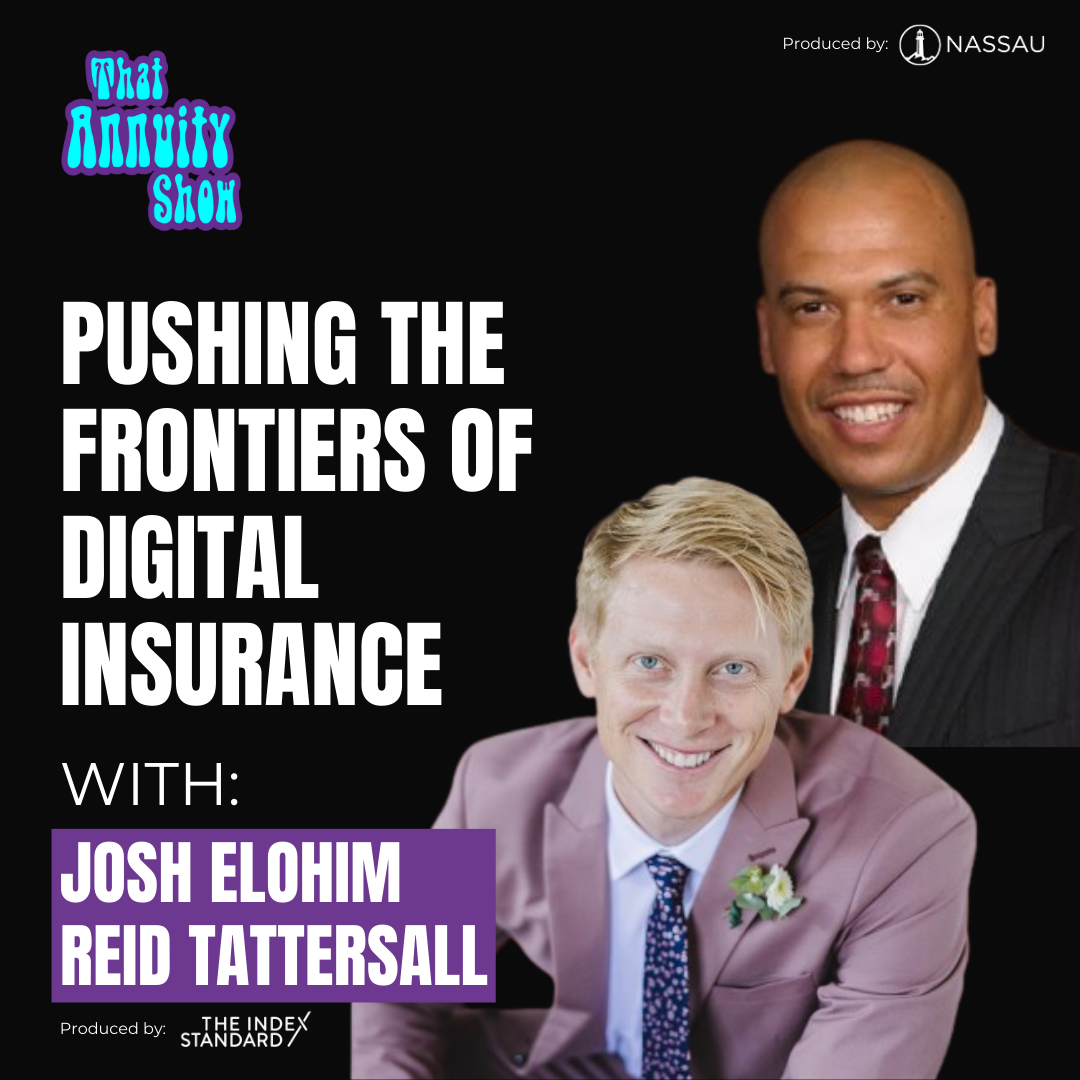



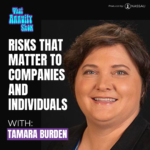
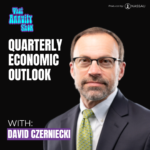
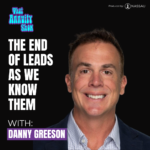
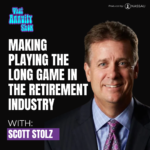
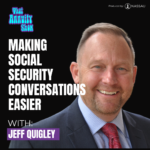
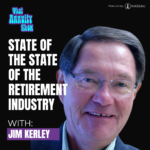

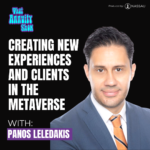
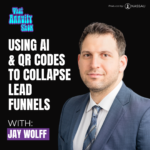
Leave a Reply